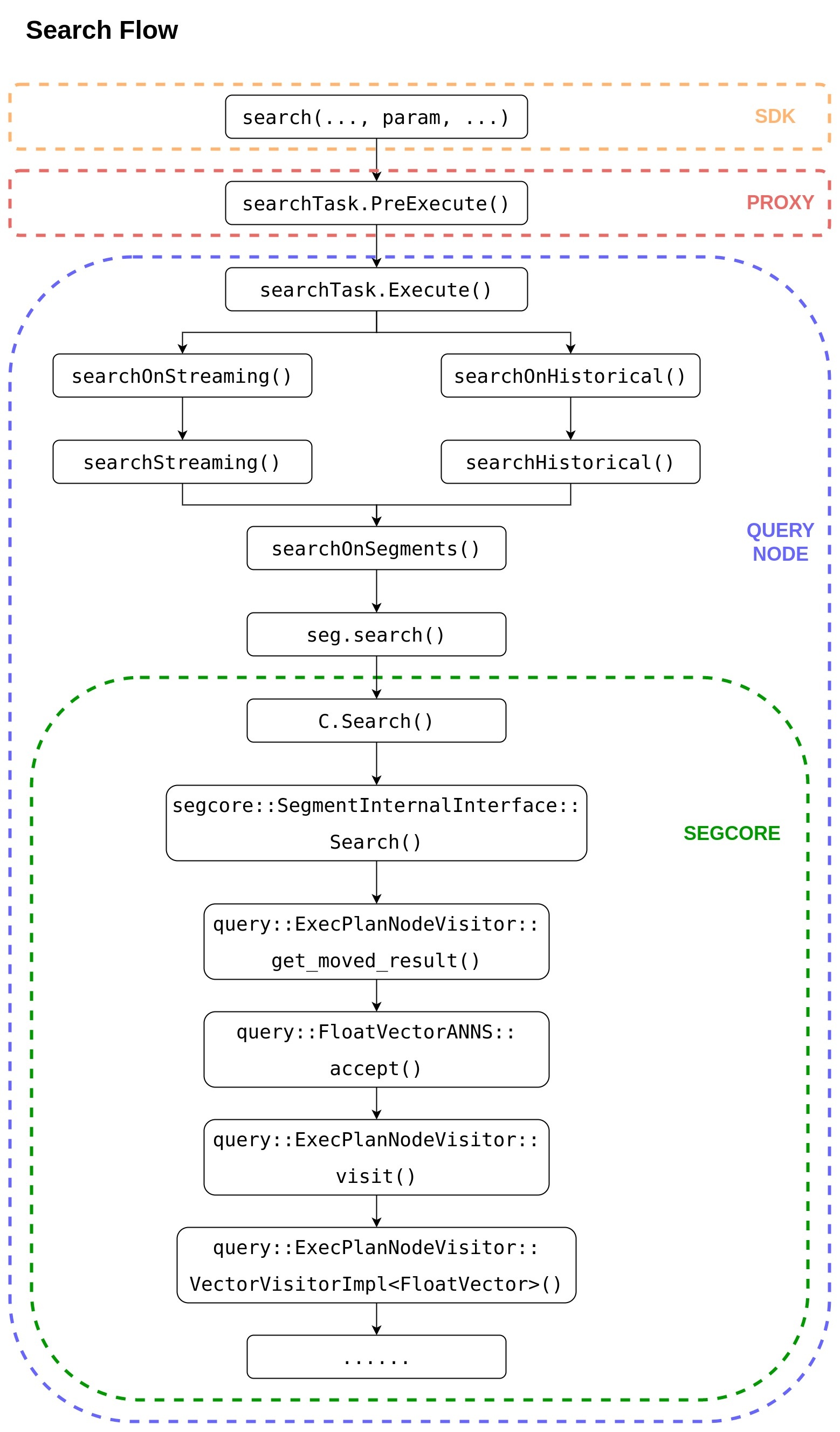...
| IP | L2 | HAMMING | JACCARD | TANIMOTO | SUBSTRUCTURE | SUPERSTRUCTURE | |
|---|---|---|---|---|---|---|---|
| BIN_IDMAP | |||||||
| BIN_IVF_FLAT | |||||||
| IDMAP | |||||||
| IVF_FLAT | |||||||
| IVF_PQ | |||||||
| IVF_SQ8 | |||||||
| HNSW | |||||||
| ANNOY |
If call range search API with unsupported index types or unsupported metric types, knowhere will throw out exception.
In Knowhere, only one parameter "radius" is passed in via config, and range search will return all un-sorted results with distance "better" than radius.
...
The valid scope for "radius" is defined as: -1.0 <= radius <= float_max
| metric type | range | similar | not similar |
|---|---|---|---|
| L2 | (0, inf) | small | large |
| IP | [-1, 1] | 1 | -1 |
| jaccard | [0, 1] | 0 | 1 |
| tanimoto | [0, 0.5] | 0 | 0.5 |
| hamming | [0, n] | 0 | n |
2. QueryByRange()
This API does range search for index, it returns all unsorted results with distance "better than radius" (for IP: > radius; for others: < radius).
...
Range search completely reuses the call stack from SDK to segcore.
With above solution, user can get maximum 16384 range search results in one call.
If user wants to get more than 16384 range search results, they can do like this: (use L2 as an example)
- NQ = 1
1st call with (radius_low_bound = 0.0, radius_high_bound = inf), get result distances like this: {d(0), d(1), d(2), ..., d(n-1)}
2nd call with (radius_low_bound = d(n-1), radius_high_bound = inf), get result distances like this: {d(n), d(n+1), d(n+2), ..., d(2n-1)}
3rd call with (radius_low_bound = d(2n-1), radius_high_bound = inf), get result distances like this: {d(2n), d(2n+1), d(2n+2), ..., d(3n-1)}
...
- NQ > 1 (suppose NQ = 2)
1st call with (radius_low_bound = 0.0, radius_high_bound = inf), get result distances like this:
{d(0,0), d(0,1), d(0,2), ..., d(0,n-1), d(1,0), d(1,1), d(1,2), ..., d(1,n-1)}
2nd call with (radius_low_bound = min{d(0,n-1), d(1,n-1)}, radius_high_bound = inf), get result distances like this:
{d(0,n), d(0,n+1), d(0,n+2), ..., d(0,2n-1), d(1,n), d(1,n+1), d(1,n+2), ..., d(1,2n-1)}
3rd call with (radius_low_bound = min{d(0,2n-1), d(1,2n-1)}, radius_high_bound = inf), get result distances like this:
{d(0,2n), d(0,2n+1), d(0,2n+2), ..., d(0,3n-1), d(1,2n), d(1,2n+1), d(1,2n+2), ..., d(1,3n-1)}
...
The result of 2nd call will have some duplications with the result of 1st call, use need do duplication check and remove them.
Compatibility, Deprecation, and Migration Plan(optional)
...
Current proposal is better than the previous one in all respects.
Others
Because the result length of range search from knowhere is variable, knowhere plan to afford another API to return the range search result count for each NQ.
If there is user request to get all range search result in one call, query node team will afford another solution to save knowhere's output to S3 directly.
References(optional)
...
